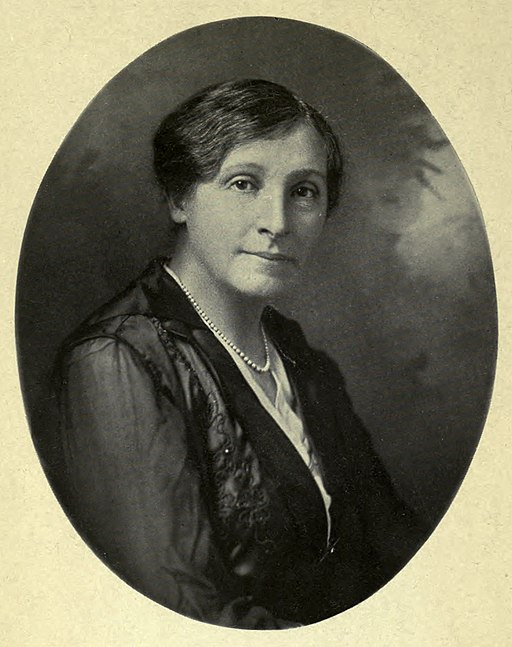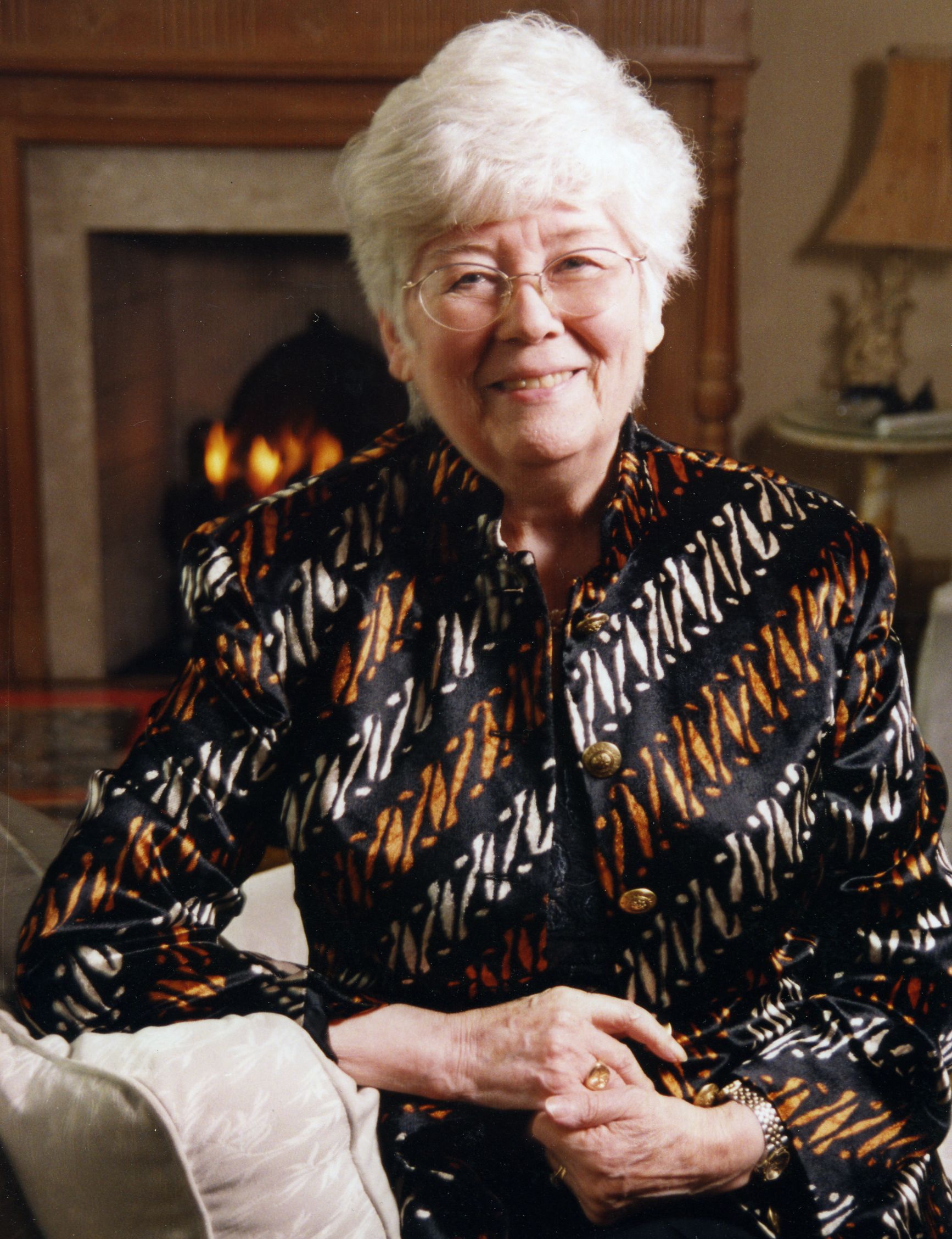International Women’s Day (IWD) on 8 March acknowledges the cultural, political, and socioeconomic achievements of women. Each March, we also commemorate Women’s History Month which highlights the contributions that women have made to society throughout the years.
2022 has been designated Scotland’s Year of Stories, which celebrates and promotes the wealth of stories inspired by, created or written in Scotland. Exploring the records available on the ScotlandsPeople website and other published resources, we spotlight three very different, but remarkable Scottish authors and their achievements for IWD: Annie Shepherd Swan, Josephine Tey and Dorothy Dunnett.
ScotlandsPeople is a unique treasure-trove of information. It is the official Scottish Government website which provides access to digital images of statutory registers of births, deaths and marriages, census returns, church records, legal records and more.
Annie Shepherd Swan CBE (1859-1943), novelist [Married name Burnett Smith, pseudonym David Lyall]

Annie Shepherd Swan was born at 52 Kirkgate, Leith, on 8 July 1859. She was the third daughter of seven children of Edward Swan (died 1893), a provision and potato dealer and farmer, and his first wife Euphemia Brown (died 1881). They had married seven years previously at the Free Church in Elie on 6 August 1852.

Swan spent her childhood and early adulthood in Edinburgh and at Mount Skip Farm near Gorebridge.

Swan enjoyed some initial successes with magazine writing; her first novel ‘Wrongs Righted’ (1881) was published serially in the ‘People’s Friend’. However, she made her name with the novel ‘Aldersyde’ (1883), a romance set in the Scottish Borders. Swan sent a copy of her work to the Prime Minister, William Gladstone, who thought “it beautiful as a work of art” for its “truly living sketches of Scottish character”. (Evening Gazette (Aberdeen) Monday 23 April 1883). The success of ‘Aldersyde’ enabled her to become a full-time writer and she went on to author over 160 books under her own name.
She married James Burnett Smith (1857-1927), a school teacher, on 27 December 1883 at the Regent Hotel in Edinburgh. After her marriage, she also wrote as ‘Mrs Burnett Smith’, and penned about 60 other books under the pseudonym ‘David Lyall’. In addition, she wrote an ‘agony aunt’ column for ‘Woman at Home Magazine’, which became known as the ‘Annie Swan Magazine’.

Swan’s writing success helped pay for her husband’s medical studies at the University of Edinburgh. They moved to England in the early 1890s where they raised their two children.
During the First World War, she volunteered for the British war effort, visiting France, and also helped Belgian refugees. She was an active Liberal throughout her life and a well-known suffragist. After the Great War, she returned to Scotland with her family. Following the Representation of the People Act 1918, which gave some women the vote in Britain, she stood unsuccessfully for the Maryhill division of Glasgow in the 1922 general election.
Burnett Smith died in 1927, and Swan and her daughter moved to a house she called ‘Aldersyde’ in Gullane, East Lothian. She is recorded in the 1935 valuation roll for East Lothian, as Annie Burnett Smith, a widow and authoress, proprietrix of a House, Garage and Garden in Nisbet Road. The property and garden had an annual rateable value of £123 (equivalent to £6,231.50 in 2017 for 1935, according to The National Archives currency converter).

Swan was made a CBE in 1930 for literary and public services. In 1934 she published her autobiography, ‘My Life’. She continued to write magazine articles until shortly before her death of heart failure aged 83 at Aldersyde on 17 June 1943. She was buried in Kinghorn, Fife.

Elizabeth MacKintosh (1869-1952) [pseudonyms Josephine Tey, Gordon], novelist and playwright
The author Josephine Tey was born Elizabeth MacKintosh at 2 Crown Terrace, Ardconnel Street, in Inverness on 25 July 1896. She was the eldest of three daughters of Colin MacKintosh (died 1950), a fruiterer, and his wife Josephine Horne (died 1923), a former teacher, who had married two years previously on 1 February 1894.


She was educated at Inverness Royal Academy and attended the Anstey Physical Training College in Erdington, Birmingham, from 1914 to 1917 (She set her 1946 thriller, ‘Miss Pym Disposes’ in a similar college). She taught briefly at schools in England and Oban, before returning to Inverness in 1923 to nurse her mother who was suffering from cancer. Her mother died on 24 June aged 52 years (NRS, 1923/098 A/252) and she stayed on to look after the family home for her father. Her father died aged 87 on 25 September 1950. (NRS, 1950/098 A/459).
The 1925 valuation roll for Inverness records her father Colin as the proprietor and tenant of 4 Crown Cottage in Victoria Circus, Inverness, which had a rateable value of £42 (equivalent to £1,724.47 in 2017 for 1925). MacKintosh is not listed in the entry because she was neither the owner nor tenant.

Whilst she was living with her father, MacKintosh began her career as a writer. She is best known for her detective novels and thrillers, but also was a playwright under the name Gordon Daviot, which she also used in her personal life (Daviot is the name of district outside Inverness where she had spent family holidays). Many of her plays had biblical or historical themes; her first play ‘Richard of Bordeaux’ starred John Gielgud in a successful run at the West End in London.
‘The Man in the Queue’ (1939) was MacKintosh’s first mystery novel published under the name George Daviot and marks the first appearance of her detective iInspector Alan Grant of Scotland Yard. ‘A Shilling for Candles’ (1936) was popularised by Alfred Hitchcock when he adapted it for his film ‘Young and Innocent’ (1937).
Most of MacKintosh’s novels were written under the pseudonym Josephine Tey, based on her mother’s forename and the surname of one of her grandparents from Suffolk. ‘The Franchise Affair’ (1948), and ‘The Daughter of Time’ (1951), were amongst her most popular books.
‘The Franchise Affair’ is a story of two women accused of kidnapping, and based on an eighteenth century cause célèbre. It was made into a film in 1951 directed by Lawrence Huntingdon and starring Michael Denison and Dulcie Grey. It was serialised on British television in 1962 and 1988.
In ‘The Daughter of Time’, Inspector Grant, whilst confined in hospital with a broken leg, investigates through historical research, whether King Richard III was responsible for the murder of his nephews. It was voted the greatest crime novel of all time by the British Crime Writer’s Association in 1990. It has been adapted twice for radio broadcast in 1952 and 1982.
MacKintosh died aged 51 of cancer at her home in Streatham, London, on 13 February 1952. She left her entire estate to the National Trust for England.
Dorothy Dunnett [née Halliday] OBE (1923-2001), novelist and artist

Dorothy Dunnett [née Halliday] was born at Davaar, Grieve Street, Dunfermline, on 25 August 1923. She was the only daughter of Alexander Halliday, a Foreman Engineer, and Dorothy Eveline Millard. They had married four years previously in Birmingham in 1921. At the time she was born, the family were usually resident at 15 Park Street in Glencraig.

Dunnett was brought up in Edinburgh where she attended James Gillespie’s High School for Girls, made famous in Muriel Spark’s novel, ‘The Prime of Miss Jean Brodie’ (1961).
In 1940, she joined the Civil Service as an assistant press officer where she worked in several government departments. There she met her future husband Alastair MacTavish Dunnett (1908-1998), who was the chief officer to Tom Johnston, the Secretary of State for Scotland.
They married on 17 September 1946 at Corstorphine Old Parish Church in Edinburgh. At the time. Dunnett was 23 years old and still employed by the Civil Service and living with her parents in Corstorphine. Her husband was 39 years old, employed as an Assistant Editor and living at 163 Maxwell Avenue, Shettleston in Glasgow.

Dunnett began writing in the 1950s. She had complained to her husband of running out of reading material and he suggested that she write something herself. She is best known for a series of six novels, ‘The Lymond Chronicles’, set during the sixteenth century which follow the life of the fictitious adventurer Francis Crawford of Lymond. This was followed by the prequel, ‘The House of Niccolò’, a series of eight novels set in the late fifteenth century, which follow the protagonist Nicholas de Fleury. Other works include: ‘King Hereafter’ (1982), concerning the historical Macbeth, and a series of mystery novels about Johnson Johnson a portrait painter and spy. Part of her archive is held by the National Library of Scotland, the rest is in the Howard Gotlieb Archival Research Center at Boston University.
Dunnett was also a renowned professional portrait painter and exhibited at the Royal Scottish Academy and other institutions. She was a trustee of the National Library of Scotland and a board member of the Edinburgh International Book Festival. In 1992, she was appointed OBE for services to literature and became Lady Dunnett in 1995 when her husband was knighted. She founded the Dorothy Dunnett Society (DDS) in 2001 to promote interest in the periods of history she wrote about and to encourage communication between her readers.
She died aged 78 of cancer on 9 November 2001 in Edinburgh (NRS, 2001/738/403) and was survived by her two sons.
In 2006, the DDS arranged for a memorial stone in the Makars’ Court, near the entrance to the Scottish Writers’ Museum, at Lady Stair’s Close, on the Royal Mile in Edinburgh. The stone is inscribed with Dunnett’s coat of arms and a short quote from one of her books: ‘Where are the links in the chain… joining us to the past.’

Further Reading
We have recently added two new entries to the Hall of Fame on the National Records of Scotland’s website for Susan Edmonstone Ferrier (1782-1854), novelist, and Nan Shepherd (1893-1981), author and college teacher. You can also learn about other authors from the eighteenth to twentieth centuries: Alison Cockburn (1717-1794), Anne Grant (1755-1838), Agnes Macklehose (1758-1841), Lady Caroline Nairne (1766-1845), Mary Somerville (1780-1872) and Muriel Spark (1918-2006).
Acknowledgements
An article relating to Annie Swan and Josephine Tey was previously published in Our Records: Scottish Authors in the 1935 Valuation Rolls on ScotlandsPeople.
The photographs of Dorothy Dunnett and her memorial stone are used with kind permission of the Dorothy Dunnett Society. The NRS is very grateful to the Society for their helpful comments before publication.
With thanks to The British Newspaper Archive for permission to quote from the Evening Gazette (Aberdeen).
Sources
- ScotlandsPeople: church registers, statutory registers, census returns, valuation rolls and record and research guides
- Avery, G. MacKintosh, Elizabeth [pseuds. Josephine Tey, Gordon Daviot] (1896–1952), novelist and playwright. Oxford Dictionary of National Biography. Retrieved 28 Feb. 2022, from https://www.oxforddnb.com/view/10.1093/ref:odnb/9780198614128.001.0001/odnb-9780198614128-e-37714
- The British Newspaper Archive
- Copson, B. Dunnett [née Halliday], Dorothy, Lady Dunnett (1923–2001), novelist and artist. Oxford Dictionary of National Biography. Retrieved 28 Feb. 2022, from https://www.oxforddnb.com/view/10.1093/ref:odnb/9780198614128.001.0001/odnb-9780198614128-e-76440
- Dickson, B. Swan [married name Burnett Smith], Annie Shepherd [pseud. David Lyall] (1859–1943), novelist. Oxford Dictionary of National Biography. Retrieved 28 Feb. 2022, from https://www.oxforddnb.com/view/10.1093/ref:odnb/9780198614128.001.0001/odnb-9780198614128-e-40374
- Dorothy Dunnett website: http://www.dorothydunnett.co.uk/ Accessed February 2022
- Josephine Tey – A Very Private Person: http://www.josephinetey.net/Index.html Accessed 4 March 2022
Tessa Spencer
Archivist
Outreach and Learning
Reblogged this on Edinburgh Library and Information Services Agency.
LikeLiked by 1 person
For more info on Dorothy Dunnett and her works, go to http://dorothydunnett.org/
LikeLike
Absolutely fantastic reading and deserved congratulations on brilliant research work.
LikeLiked by 1 person